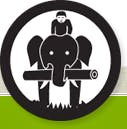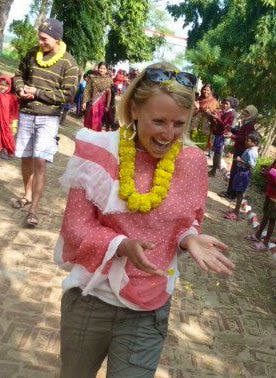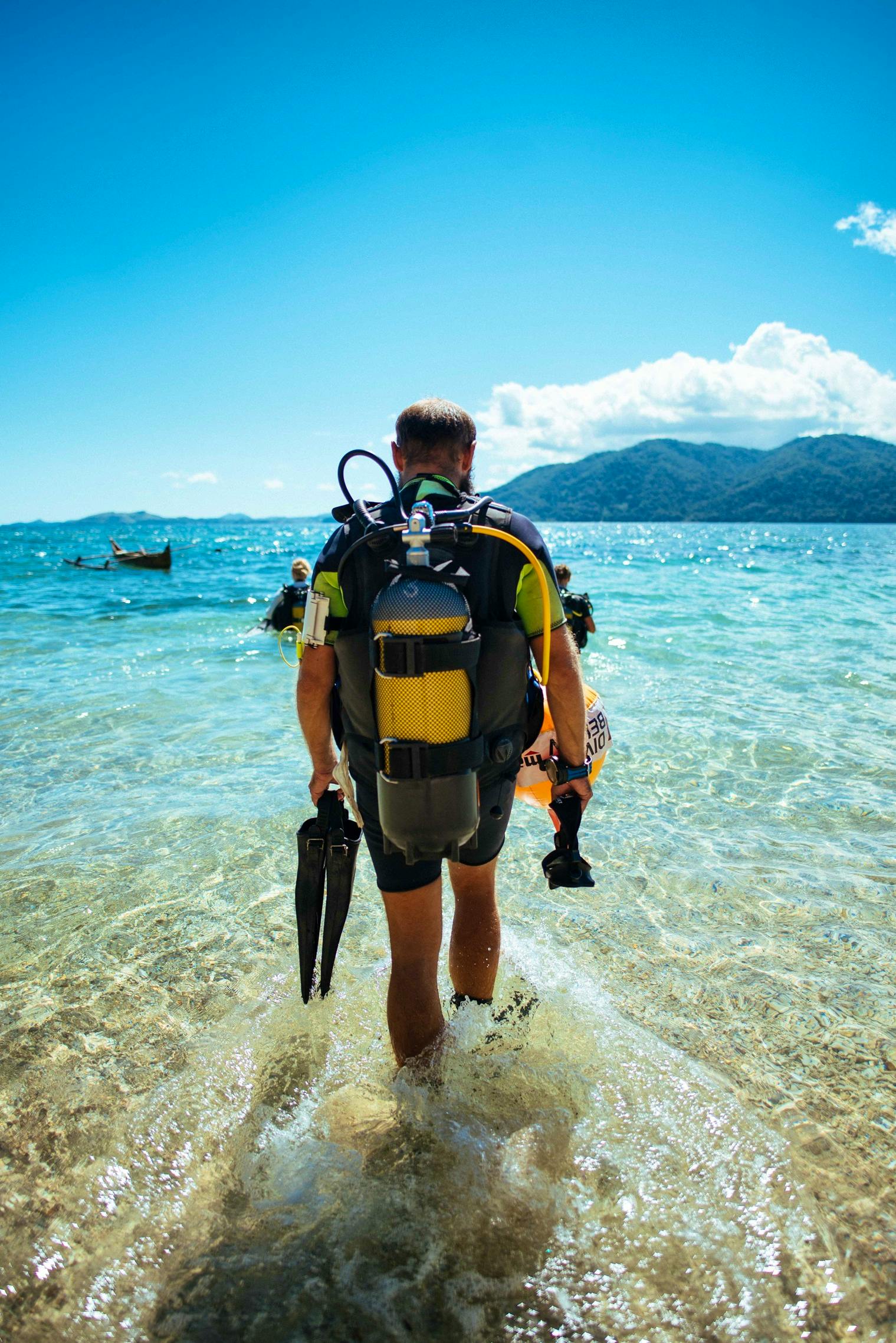Overview
Help protect the local marine eco system, turtles and other marine life, and the coral reef off the coast of the stunning island of Nosy Komba.
Training
Volunteers undergo thorough training to equip them for research and data collection activities in our marine program. This training includes the identification of marine wildlife and plants, such as turtles, fish, corals, invertebrates, and macroalgae surveys. You'll learn various transect surveying methodologies, a crucial skill in marine conservation used globally to monitor coral reefs and better understand our marine environment.
*All marine program volunteers must be at least PADI AOW certified (or equivalent). See more further down.
Volunteers are also required to bring the following items with them, as they are not available to purchase on the island:
- Mask with tempered glass
- Snorkel
- Spare mouthpiece for regulators
- Dive fins (open heels with booties are more comfortable for frequent use)
- Rash guard or wetsuit (we recommend a shortie, 2-3mm)
- Wriststrap compass (mandatory for PADI dive courses)
- Logbook (mandatory for dive courses, physical or online version)
- PADI E-learning (available to purchase online or from your local PADI dive store) or PADI Crew Pack (for Divemaster students)
- Large dive slate for surveys (A4 size) - smaller sizes cannot be used for surveys
- Pencils or graphite pens for diving
Optional Items:
- Regulator and BCD (highly encouraged)
- Dive bag or dry bag for boat trips
- Diving knife
- Waterproof watch or dive computer (resistant to 200 meters, optional but highly recommended)
- Donations of masks and wetsuits are very welcomed
What will you be doing?
Identification Dives: The best way to learn and for staff to assess your knowledge is by conducting 'practice surveys' after each presentation in your EMP course. Each lecture will be followed by a practice survey. The survey data will be compared between you and your instructor, and a debrief will be held after each dive to evaluate your progress and address any questions you may have.
Dive Against Debris: This project empowers divers to actively combat marine debris by participating in underwater clean-up dives and reporting the debris data collected. Your involvement directly supports critical conservation initiatives, providing valuable information for marine researchers and policymakers. As a Dive Against Debris Diver, you play a vital role in tackling the global issue of marine debris and advancing the PADI Blueprint for Ocean Action.
Coral Watch: This project is part of a worldwide initiative to monitor coral health and raise awareness about the effects of climate change on coral reefs. By joining, you'll gain hands-on experience in gathering scientific data on coral bleaching using the Coral Health Chart. Your contributions will help increase public awareness of reef ecosystems and contribute to global coral conservation efforts.
Species Tests: We require you to achieve a mark of 80% or higher on the computer tests. We suggest attempting the first tests by at least the end of your second week to assess your progress and identify areas needing improvement. These are not formal tests but rather assessments. After each practice survey, a post-dive briefing will recap what was observed and how you performed.
Practical Surveys: Our MRCI dive staff will lead you through a series of practice surveys to help you become familiar and confident with the survey methodology and scientific diving techniques. After 3 to 4 practice surveys, you should be able to perform the surveys as accurately and efficiently as the staff, indicating you are ready to conduct surveys independently.
Ecological & Monitoring Dives: Volunteers will assist with underwater surveys, data collection, and analysis, contributing to our ecology and monitoring efforts. You will help identify and record species, measure and track changes in population sizes, and document environmental parameters. Volunteers may also tag and monitor marine animals, collect samples for genetic analysis, and assist with data entry and analysis. All surveys are conducted during 40 to 50-minute dives, with a staff member leading the dive. We currently have three independent survey sites along the coast of Nosy Komba, each with a series of 20m line transects that are regularly surveyed.
Dry Activities
Data Entry and Analysis: With extensive scientific survey work being conducted underwater, we accumulate a significant amount of data and photos that need to be inputted and analysed. All volunteers assist with data entry on a rolling basis, and those willing and/or experienced in data handling undertake analysis.
Beach Cleans and Village Cleans: Beach clean-ups and community awareness initiatives are vital in reducing the negative impact of plastic pollution on marine life. The significant tidal range around Nosy Komba offers an excellent opportunity for marine volunteers to clean the beaches and rocks at low tide, collecting marine litter.
Artificial Reef Creation: This project focuses on building and improving artificial reefs to promote marine biodiversity and create new habitats for coral and other marine life. As a volunteer, your efforts are essential in constructing these reefs, which play a key role in supporting marine ecosystems. You will help design and build structures that replicate natural reefs, providing safe environments where marine organisms can flourish and regenerate. Your tasks will include hands-on activities such as assembling and placing reef structures in designated locations.
Education Workshops and Community Work: All MRCI volunteers engage in workshops and classes for local schools in the neighbouring villages and universities. Volunteers plan forest and marine-oriented classes, along with fun scientific lectures or presentations, to engage with the locals, explain our mission, and help them understand how and why they should conserve their natural environment.
IMPORTANT
To participate in MRCI marine conservation survey work, you must be at least PADI AOW certified (or equivalent). Scientific survey work while diving requires accuracy and skill that can only be acquired through advanced dive training.
If you do not have any training, you are able to complete the OW and AOW courses in Madagascar, paying the extra fee to the local team on arrival.
You will need both…
PADI Open Water (OW) Certification: If you are a new diver, you must purchase and complete your PADI Open Water E-Learning Theory before arriving in Madagascar. This allows you to start your practical dive training immediately. Internet is limited on Nosy Komba, making it difficult to complete E-learning once on camp.
PADI Advanced Open Water (AOW) Certification: If you are already OW certified or completing your OW onsite in Madagascar, you must also purchase and complete your PADI Advanced Open Water E-learning Theory before arrival.
If you are already AOW certified or above/equivalent, you can start participating in survey work and training for reef surveys as soon as you complete a PADI Scuba Review.
Additional PADI Courses: You may also be able to purchase other PADI courses, such as Rescue Diver, Emergency First Response, and Dive Master training.
LocationNosy Komba, a charming island off the northwest coast of Madagascar, is known for its lush greenery, stunning beaches, and vibrant coral reefs. Often referred to as "Lemur Island," it is home to a thriving population of lemurs that roam freely. The island’s picturesque villages are inhabited by friendly locals who practice traditional Malagasy crafts and fishing. Our location is fairly remote, being a 30 minute hike over rocky terrain or accessible by boat.
Project Tasks
- Underwater surveys
- Data entry
- Beach cleans
- Community education
- Coral watch







 4.7
4.7















